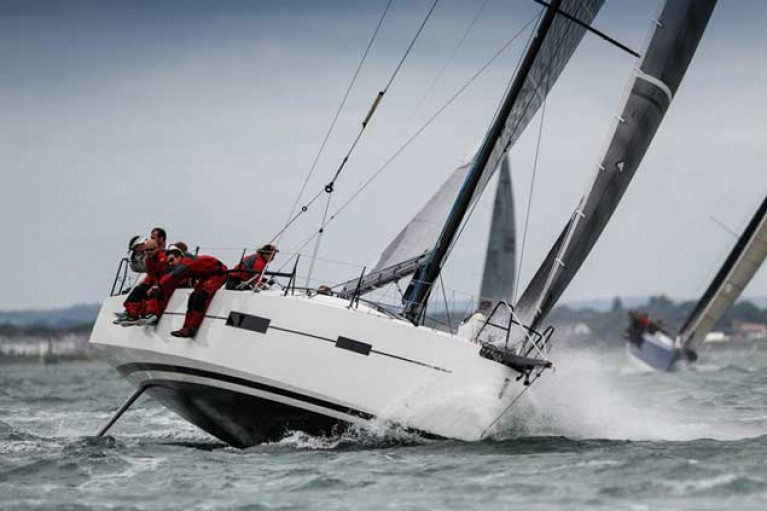Displaying items by tag: Pata Negra
ISORA campaigners Andrew and Sam Hall retired from the RORC Transatlantic Race after his yacht Pata Negra lost a rudder with 900 miles to go in the 3,000-mile race.
According to Liverpool Yacht Club crew reports on social media, the Lombard 46 was running downwind in the middle of the night when the damage occurred.
"Lost port Rudder, crew all OK, making way to harbour" is the official report on the race website.
There was some sail damage in the incident, too, but all are reported safe and well on board.
The crew say they are 'devastated' at not being able to finish the race, according to information received by ISORA's Peter Ryan.
The latest update from onboard says, "They have managed to bung the hole to stop the water coming in and are now nursing the boat under jib to the nearest land, 5-6 days away."
As Afloat reported earlier, Dublin Bay's Conor Corson is Pata Negra's Watch Captain.
 Pata Negra is under reduced sail since losing a rudder
Pata Negra is under reduced sail since losing a rudder
Darren Wright of Howth Puts Famous Pata Negra On to Boil in the Round Ireland Yacht Race
When the then-new Lombard 45 Pata Negra was racing with a Dutch charter crew in the 2017 Rolex Fastnet Race and carving her way through the fleet with style and winning speed, Howth YC’s offshore team manager Kieran Jameson was closely monitoring her progress.
By the time she finished at Plymouth well in the frame, he had Pata Negra chartered for the up-coming February 2018 RORC Caribbean 600, with it all neatly zipped-up for serial international offshore campaigners Michael and Darren Wright of HYC. It was a shrewd move – by sealing his deal before the boat finished, it emerged that Jameson had got in ahead of nine other keen bidders.
In that Caribbean 600, Pata Negra with the Howth crew had a scorcher of a race, and despite multiple Code Zero damages in one of the toughest race yet sailed around the island course, she placed third in class. The Wright/Jameson team then took a break from the Northern hemisphere to campaign a First 40 with success in the Rolex Sydney-Hobart Race 2019, which was Howth all the way with Gordon Maguire winning overall in Ichi Ban. But now with life returning to something vaguely like normal for the time being (or as normal as it can be with coronavirus still not completely nailed), a long-held notion that Pata Negra would make an interesting challenger for the Round Ireland has re-emerged, and Pata Negra (Darren Wright, Howth YC) is entry No 51 in the SSE Renewables Round Ireland Race 2020 from Wicklow on August 22nd.
Read all the latest news on the build-up to next month's race in Afloat's dedicated SSE Renewables Round Ireland Race section





























































